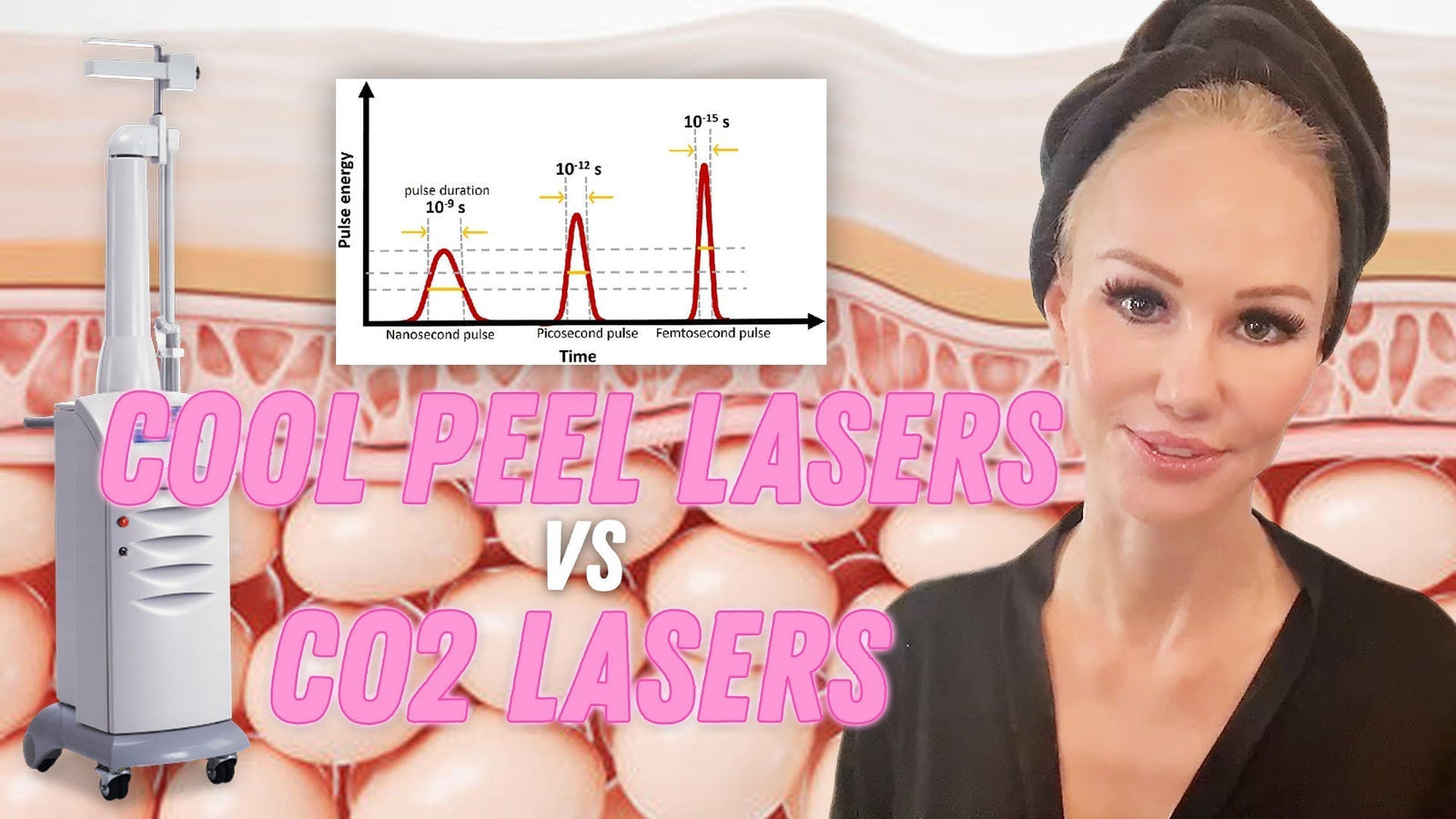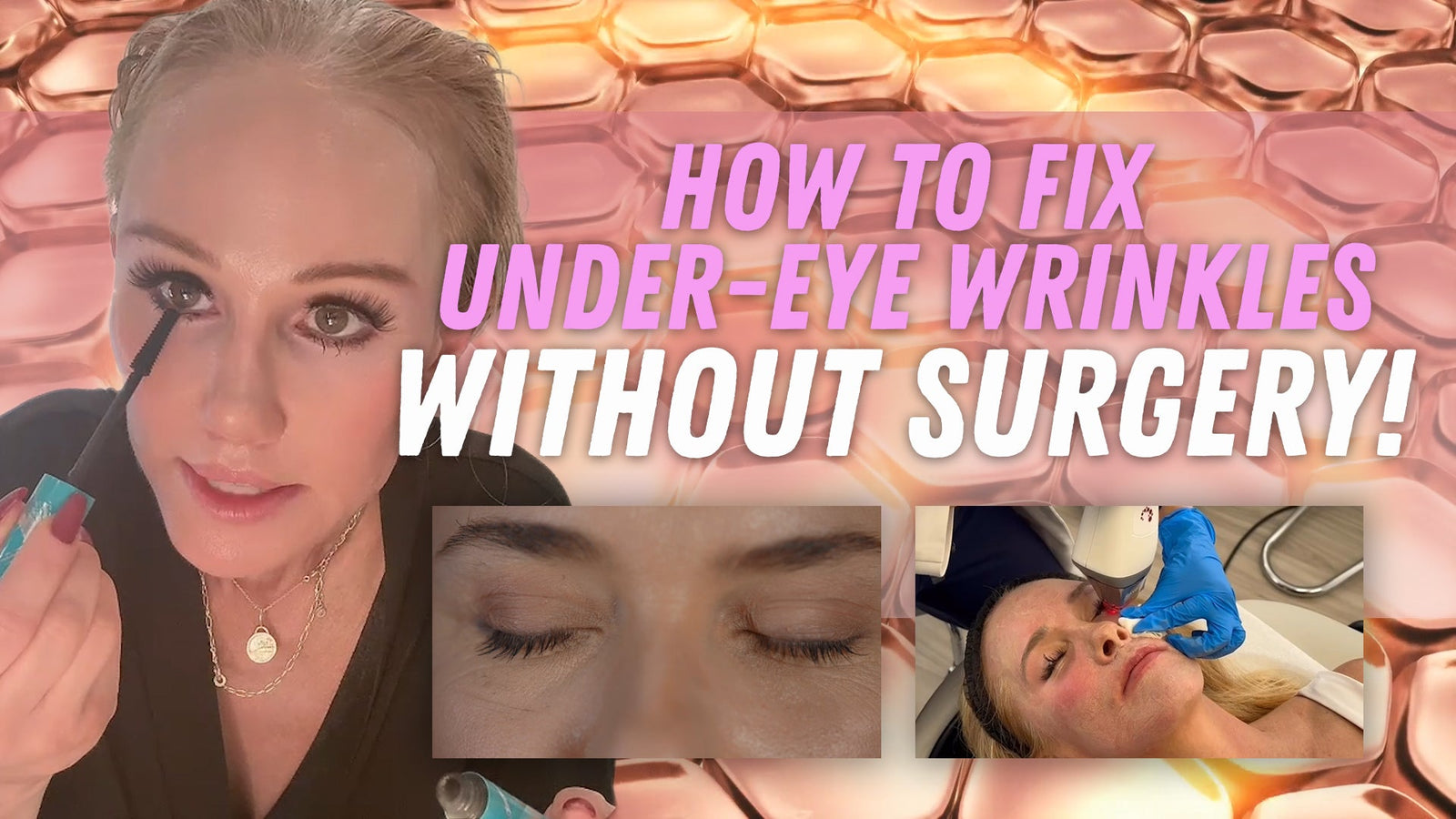Hi my beauties!
Today, I want to talk about a topic that I frequently get asked about by my patients: cleansers. Cleansing is a crucial step in any skincare routine, and it plays a vital role in maintaining healthy, radiant skin. In this blog post, I will discuss the importance of cleansing, how to cleanse effectively, and what to look for in a cleanser.
Let's start by talking about why cleansing is so important. Throughout the day, our skin is exposed to various irritants, pollutants, toxins, dirt, sebum, and build up of dead skin cells. Over time, these substances can accumulate on the surface of the skin, leading to inflammation and clogged pores. In turn, this can result in skin conditions like eczema and dermatitis. Additionally, the buildup of pollutants and free radicals can accelerate premature aging, causing collagen and elastin fibers to degrade. This can lead to a loss of volume, laxity, and an overall aged appearance.
But why should you cleanse in the morning too? Even during the night, while you sleep, your skin is still exposed to pollutants. While your body rejuvenates and your immune system eliminates toxins and atypical cells, it is crucial to wash away these impurities in the morning before starting your day. This is especially important if you are prone to acne since cleansing helps remove sticky cells that can clog your pores overnight. Washing your face both in the morning and at night is essential for everyone.
Now, what if you have sensitive skin? If you find that washing your face makes your skin feel dry or sensitive, it may be a sign that you are using the wrong cleanser. In such cases, nighttime cleansing becomes even more important, and you should aim to find a cleanser that you can tolerate using twice a day. Start with a gentle cleanser and gradually work up to twice-daily cleansing if your skin allows it.
So, how do cleansers work? Cleansers contain surfactants, also known as detergents. These molecules have a hydrophilic head that loves water and a hydrophobic tail that loves oil. The hydrophilic head helps wash away dirt, oil, and sebum, while the hydrophobic tail binds to these substances. Therefore, cleansers need to be formulated in a way that effectively removes debris and oil from the skin, rather than just moving them around. It is essential to strike a balance between cleansing the skin effectively and not over-stripping it. Personally, I prefer cleansers with natural-based surfactants derived from sources like coconuts or other plants. These tend to be gentler on the skin, providing a "clean" feeling without being overly harsh.
Let's talk about alkalinity in cleansers. High alkalinity, often found in bar soaps or certain cleansers, can disrupt the skin barrier and cause problems. Cleansers with higher pH levels strip the skin of its natural oils and moisture, leading to dryness and potential irritation. Using active ingredients immediately after using high-alkaline cleansers can further increase inflammation and aggravate skin conditions. That's why my Biocleanse 5.5 cleanser from MDAiRE is formulated with a pH of 5.5, which matches the natural pH of the skin. By using a pH-balanced cleanser, you eliminate the possibility of irritation or intolerance.
Now, let's address the question of whether double cleansing is necessary. Many people wonder if they should incorporate a two or three-part cleansing system or use micellar water. The answer depends on each person's individual needs. If you wash your face and still feel like you have makeup or sunscreen residue, it's essential to do a second cleanse. Since I started using my Biocleanse 5.5 cleanser, I have found that a single cleanse with lukewarm water and circular motions effectively removes all dirt, oil, makeup, and sunscreen residue from my skin. It's a one-part cleanse that gets the job done without stripping the skin. However, if you use an oil cleanser, a second or third cleanse might be necessary since oil doesn't have the hydrophilic head to effectively remove dirt, oil, and impurities from the skin.
Exfoliation is another important aspect of skincare. While many people focus on chemical exfoliation, I believe that mechanical exfoliation has its merits too. Each person's skin is unique and has different needs, so finding the right type of exfoliation for you is crucial. Personally, I used to incorporate mechanical exfoliation into my routine every day, but I have found that scaling back on its frequency hasn't compromised the condition of my skin. Remember, your skin can change over time, and its tolerance and needs can vary.
For those dealing with acne-prone skin, specific ingredients like benzoyl peroxide, salicylic acid, BHAs, and AHAs are beneficial. However, it's important to choose a cleanser with an appropriate percentage of active ingredients that won't irritate your skin. Benzoyl peroxide, for example, can come in 5% or 10% concentrations. The 10% concentration is usually intended for body acne and can be extremely drying and irritating for the face. Stick to a 5% or lower concentration for facial use. Additionally, the duration you leave the cleanser on your skin matters—leaving it on for longer periods increases the potential for irritation.
When it comes to choosing a cleanser, there are a few factors to consider. For acne-prone individuals, I recommend the SkinBetter Oxygen Cleanser. It combines oxygen and acids to detoxify and oxygenate the skin, clearing pores and removing debris and sebum. However, if you have dry or sensitive skin, use it with caution, as it can be a bit too intense. Gel cleansers are effective for oily skin types, but be careful not to over-strip your skin, as this can lead to an overproduction of oil. If you have oily skin, be cautious with oil-based cleansers, as they may not effectively remove excess oil. Lastly, for sensitive skin, avoid cleansers with fragrances and dyes, as these can be highly irritating. My Biocleanse 5.5 cleanser is free from fragrance and dyes, making it suitable for all skin types.
I hope this blog post has shed some light on the world of cleansers and the importance of properly cleansing your skin. Remember, finding the right cleanser for your skin type and needs is essential for maintaining healthy, radiant skin. Happy cleansing, my beauties!



